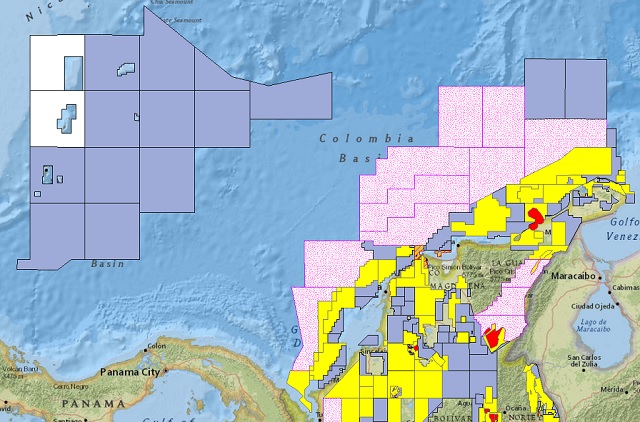The governors of Arauca and Meta spoke at the launch of an employment initiative being put on by the Labor Ministry, and accused oil companies of ignoring local workers, contractors and not participating in public employment services.
The USO has been politicking and reaching out to friends in high places, in an effort to build political momentum and recruit allies ahead of an Ecopetrol (NYSE:EC) strike planned for October.
Caquetá congressional representative Harry González said that public order problems which have arisen following the start of hydrocarbons exploration activities show that a departmental popular referendum is necessary to see if the residents want to accept the activity.
The legal limit for the government to present its biannual royalty budget for 2017 and 2018 is approaching fast and due on October 3rd, the day following the plebiscite on the peace agreements. This and other royalty related stories in our periodic summary.

The Minister of Mines and Energy Germán Arce said that the Caribbean region has the greatest prospectively for both onshore and offshore exploration of hydrocarbons, and represents the future of the industry.
The USO said that it is advising and accompanying a group of 14 communities in protests against Ecopetrol (NYSE:EC) in Orito, Putumayo.
Hocol’s plan to drill an exploration well in La Macarena in the CPO-16 block is churning up community opposition, and company representatives allege that there are activists feeding the community with bad information to increase resistance.
The last two weeks have seen a number of high profile oil spills due to attacks on pipelines, overturned tankers, flooding and damaged road infrastructure. These and other environmental stories in our periodic summary.
A municipal hearing was held in San Juan de Arma as anti-oil advocates call for the National Agency of Environmental Licenses (ANLA) to revoke the licenses it has granted to Hocol in the nearby area.
The Casanare Governor Alirio Barrera laid down a criticism of oil companies, which he said have taken advantage of the department, but have little interest in helping in times of crisis. The Colombian Petroleum Association (ACP) responded that operators needed a concrete plan.